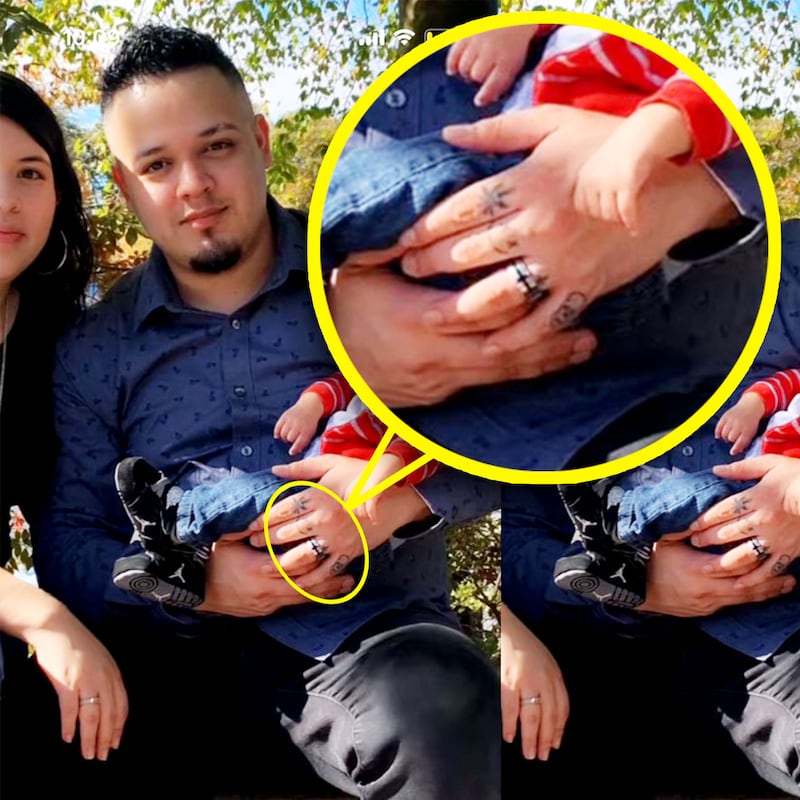El Salvador’s security and justice minister has cast doubt on President Donald Trump‘s claim that a wrongly deported Maryland dad’s tattoos prove he’s a member of MS-13.
Gustavo Villatoro admitted that the Trump administration has not handed over any evidence linking Kilmar Abrego Garcia to the notorious gang.
“If we want to accuse him, we have to receive the whole proof that he is a member of MS,” Villatoro told The Telegraph. When asked if that meant El Salvador was uncertain about Abrego Garcia’s gang ties, he responded, “Yes, we are waiting for the evidence.”

His comments come after Trump insisted in an ABC News interview Tuesday that Abrego Garcia was a member of MS-13 because of his tattoos. The president repeatedly claimed that the Maryland father, who was mistakenly deported to El Salvador’s mega-prison CECOT in March, had “MS-13” tattooed across his knuckles.
Trump previously posted a photo on social media of Abrego Garcia’s hand showing four tattoos—a marijuana leaf, smiley face, cross, and skull. In the picture, the numbers and letters “M-S-1-3” were digitally added above each tattoo, part of an apparent argument that the symbols were a code to signify gang membership.
But it seems even Villatoro—who has led El Salvador President Nayib Bukele’s crackdown on gang crackdown, which has swept up thousands of innocent people—doesn’t exactly consider tattoos alone to be “hard evidence” of gang membership.

The security minister said that Abrego Garcia has been transferred from the high security CECOT prison to one of the country’s lowest security prisons, where no gang members are incarcerated, because the United States has yet to send any evidence of his criminal history.
The Trump administration has cited images of Abrego Garcia wearing Chicago Bulls merchandise, the tattoos on his knuckles, and a confidential informant’s claim that he belonged to the gang’s clique in New York—even though he’s never lived there—to accuse Abrego Garcia of being an MS-13 member.
At the time of his arrest, Abrego Garcia was living in Maryland with his wife and three children. He had entered the U.S. illegally in 2011, fleeing gang threats in El Salvador. A 2019 court ruling barred his removal due to the risk of persecution in El Salvador. His lawyers have denied that he is a gang member and said he’s not been charged with any crimes.
After the Supreme Court ruled this month that the Trump administration must “facilitate” Abrego Garcia’s return, Trump argued he had no power to force El Salvador to release the father onto U.S. soil.
During Tuesday’s interview, however, Trump said that he “could” bring Abrego Garcia back to the U.S. but is choosing not to.
Meanwhile, Villatoro told The Telegraph, “We can’t… as El Salvador, we can’t send him to the US, we don’t have the possibility, and of course, we are not trying… to move US terrorists, to move to the US… in the future can pass a lot of things, but all of that has to be according to our agreement and according to the law, of course.”
The post El Salvador Gulag Boss Casts Doubt on Trump’s Tattoo Claims appeared first on The Daily Beast.




